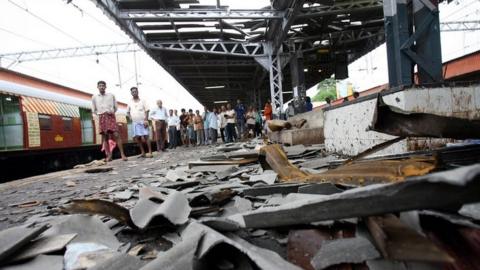
Bombay High Court Acquits 12 in Mumbai Train Blast: Who's Really to Blame?
The Bombay High Court has made a shocking decision, acquitting all 12 individuals previously convicted for the devastating 2006 Mumbai train blasts. This ruling, anchored in claims of insufficient evidence, leaves one critical question echoing through the minds of victims: Who really did the blast?
On July 11, 2006, seven pressure cooker bombs exploded across Mumbai's suburban train network, leading to unfathomable loss of life and countless injuries. Initial investigations pointed fingers at notorious terrorist organizations like Lashkar-e-Taiba and Lashkar-e-Qahhar, which swiftly claimed responsibility. Yet, with all 12 accused now walking free, the chilling mystery lingers—who orchestrated such a heinous act?
This recent acquittal isn't just a legal formality; it's a rallying cry for the families of victims, who are left grappling with unanswered questions and an unshakable sense of injustice. How can a court absolve individuals when the real masterminds behind the Mumbai train blast remain in the shadows? The lack of concrete evidence has become a convenient excuse, but it does nothing to satisfy the yearning for accountability and closure.
Victims and the public alike are right to demand answers. The 2006 Mumbai train blasts are not just a footnote in history; they're a stark reminder of how vital it is to pursue justice relentlessly. As the dust settles on this controversial verdict, the call for truth and accountability must only grow louder. The ongoing ambiguity surrounding the actual perpetrators is a dire call to action for authorities to end this cycle of uncertainty and deliver justice to the victims.
